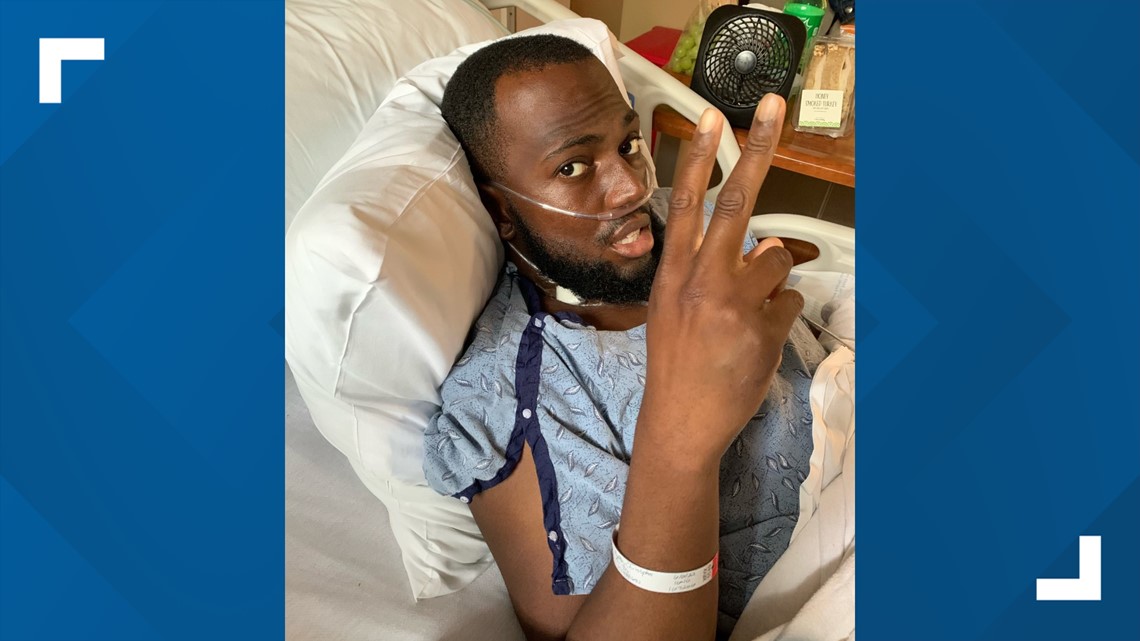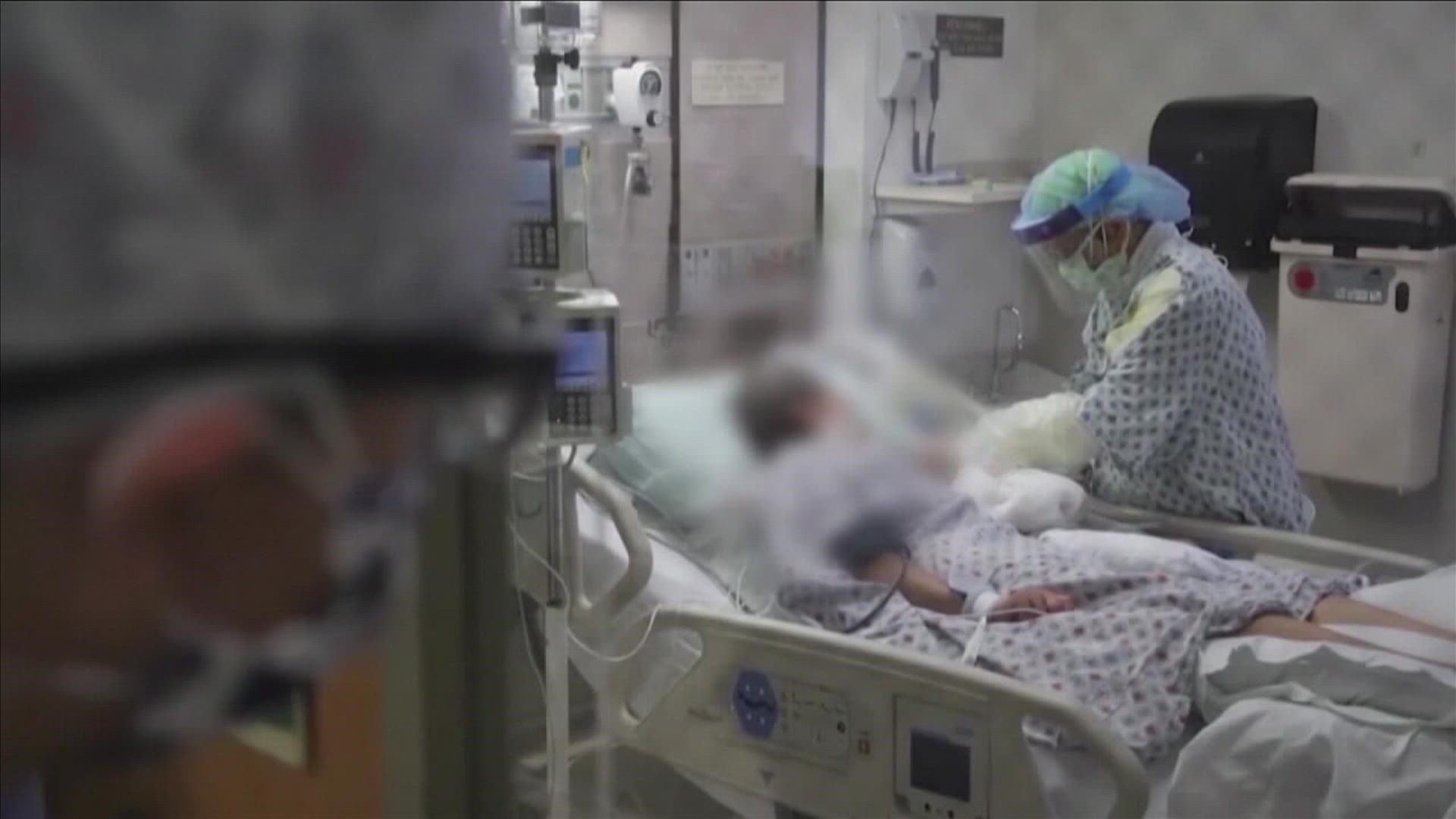MEMPHIS, Tenn. — Each year, on June 19th, the world brings awareness to sickle cell disease. According to the CDC, about 100,000 Americans are affected by sickle cell disease. The majority of those patients are black. Those who have the disease sometimes suffer in silence, as many stigmas and misconceptions shape treatment.
At the University of Tennessee Health Science Center nurses took part in a sickle cell boot camp.
This program is truly the first of its kind. As many health professionals and sickle cell patients will tell you, it is needed. The disease makes red blood cells appear in a “sickle” shape preventing oxygen from properly flowing through the body.
Chris Ruffin, an employee at ABC24, has been fighting sickle cell ever since he was a child. He said this program not only gives hope but stresses the importance of what sickle cell patients need most someone to listen.
“I’m 28-years-old and been dealing with sickle cell. Basically, had a stroke when I was six. Since then, everything has been fine. I haven’t had many hospital stays,” said Ruffin.
At the beginning of June, Ruffin found himself in pain. “My back started hurting and I couldn’t walk.” Ruffin was having a pain crisis forcing him to get help.
“The first hospital we checked into was at two in the morning,” said Ruffin. “We stayed at that hospital for about two hours. They said it would be an 8-hour wait. The second hospital, we had some luck and a doctor gave us meds, but I still wasn’t feeling my best…The last hospital, we found some relief. They were just like, ‘hey, you’re a sickle cell patient. We need to get you to the back immediately. This is our protocol.” Ruffin went to three hospitals in a matter of hours.
“They just weren’t paying attention. That’s really what it was,” said Ruffin. One issue many sickle cell patients face is being heard. “If you don’t listen to sickle cell patients, their bodies can shut down at a moment’s notice. You don’t want your not listening to be the cause of somebody’s death. That’s how severe it can get.” Severity is what the University of Health Science Center wants to prevent.
For the first time ever, they hosted a sickle cell boot camp for nurses. “We are actually making sure that nurses across the nation have adequate education on how to treat patients with sickle cell disease,” said Dr. Artangela Henry, UTHSC Assistant Professor and Nurse Practitioner. Dr. Henry helps run the camp walking nurses through various scenarios patients experience.
“These individuals have so many complications literally from head to toe. Anywhere that blood flows, they can have a sickle cell crisis,” said Dr. Henry. “Some of the complications that they have include stroke, issues with their eyes that could lead to blindness, heart problems, liver problems, stomach problems, problems in their bones…We want nurses to understand that if they’re in pain, they’re in pain for a reason. We have to investigate as providers to figure out what that reason is.”
Maggie Robertson is a nurse participating in the program. “It’s really been eye opening too. It’s really shown a lot of whereas healthcare we’re failing with sickle cell and ways that we can improve...Hearing from the sickle cell patients saying, ‘this is what I want from a provider. This is what I haven’t gotten from providers…The biggest thing was to listen to them. Listen and understand.” That is a request that is so simple, yet often ignored.
“That’s where a lot of sickle cell patients get furious with because nurse sometimes and doctors don’t understand our pain. With that, you can’t do anything because a lot of people think you’re just trying to get drugs because it’s an African American disease…but it also affects Hispanics as well.”


That makes this sickle cell boot camp imperative. “It give me a lot of hope because for one, I myself just wrote a book on sickle cell trying to get more people to be advocates of sickle cell,” said Ruffin. “You have to speak up for people even if they can’t speak up for themselves.”
“This is for all those who are living with sickle cell who have been pleading for people to just listen to them. Just hear them,” said Dr. Henry.
“When I hear the word ‘listen,’ I hear the word ‘love.’ I think when you listen to somebody, you show them that you have compassion for them. You show them that you love them,” said Ruffin. It also shows you care because listening saves lives.
Ruffin’s book is titled, Succeeding with Sickle Cell. He mentors sickle cell patients on how to succeed in their lives while living with the disease.
The Sickle Cell Boot Camp is funded by a $50,000 grant from biopharmaceutical company, Global Blood Therapeutics Inc. St. Jude Children's Research Hospital is also a partner in the boot camp.

